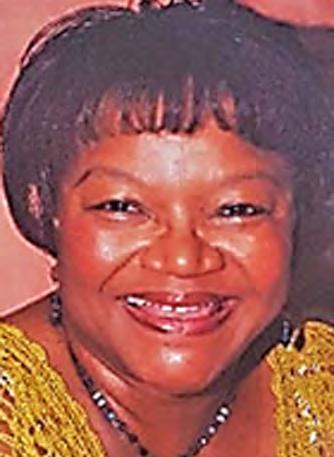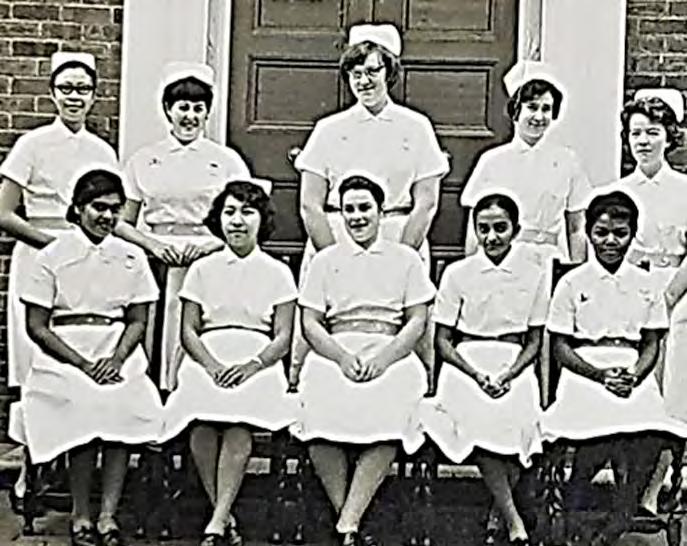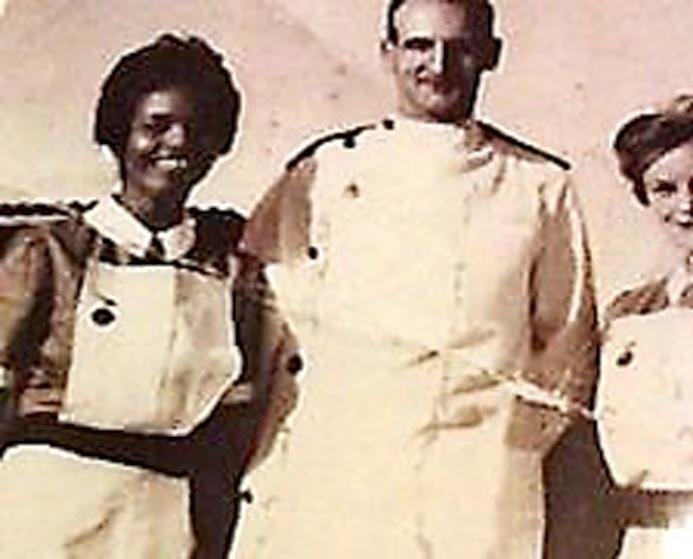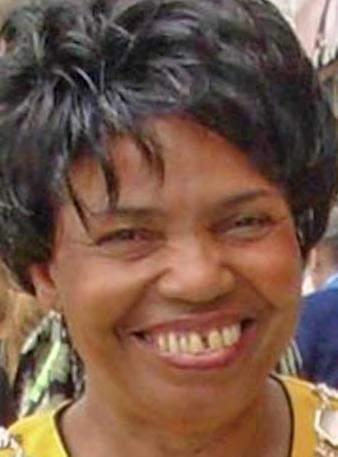
3 minute read
Windrush75 ‘WehelpedtobuildtheNHS’
Nurses remember experiences in UK hospitals after responding to calls from the ‘mother country’.
By Leah Mahon
FOR THE thousands of women that came to Britain after the devastation of the Second World War, who trained to be nurses and worked tirelessly to build the NHS that millions know today, their dreams first began as little girls on islands in the Caribbean.
Lynette Richards-Lord, 85, grew up in Guyana and had always planned on training in the profession in her home country. However, she like many others responded to the calls from the “mother country” as labour shortages ran rife.

“I knew I wanted to be a nurse. In fact, my father used to encourage me with that idea, because he used to say nursing is such a wonderful profession,” she tells The Voice. “I liked nursing people; when my father was ill I used to look after him before I left home. And so, it was something that was within me.”
A teenaged Lynette arrived at Paddington Station, London, in February 1959 and soon began her training as a nurse in Somerset just a month later. She began work as a Senior Registered Nurse before going on to qualify in midwifery in December 1963, a role that took her to work in Birmingham and Croydon. She recalls how some of her patients had the “marks of the war” on them.

As Lynette took to life as a working nurse in Britain, she saw that a job had been posted for a Senior Nursing Officer, but doubted she would get the job after the interview because she was Black “and they didn’t have any Black senior officers in those days”.

But she did get the job and became the first Black divisional nursing officer for midwifery where she stayed in management for the next 20 years.

Sherlene Rudder’s arrival in Britain to help amid the postwar effort was a similar experience. Growing up in Barbados, she stayed with her grandparents after her mother and father travelled to Britain in the 1950s.
By the time she turned 18, she had seen an advert for nursing jobs that inspired her to make a “serious steps forward” in her budding career. But, it also had everything to do with her grandmother.
She tells The Voice: “My interest in nursing started when I was a little girl. My great grandmother actually was one of the first community midwives in St. Lucie, Barbados, and I liked what was happening to her; reaching out to children or helping parents give birth to their children.”
Sherlene, 75, arrived in Britain in 1964 and had applied to Kent and Sussex Hospital, but to her dismay she was told she didn’t qualify for the job. She described her mother as “pretty sharp,” as she quickly realised that her rejection had more to it. She demanded to see the matron and was told her daughter needed to sit an exam first.
Sherlene admits that she felt they responded that way when they realised she was Black despite having every capability to do a nursing job.
Lynette recalls that as she worked alongside an English nurse with the same qualifications, she was given better jobs to do like dressings.
She said: “I was left in the sluice which was cleaning the bedpans and I pointed it out to the person in charge of the ward at the time.”
The unequal treatment carried on for days before taking things into her own hands and went to see the matron.
“So I gave up my lunchtime and I went to see the matron and asked her, what was happening? And she said, by the time I got back to the ward, she had got in touch with the sister and sorted it out,” she said, adding that racism didn’t happen to her often but when it did, it did hurt.
However, the nurses like Lynette and Sherlene who came over as part of the Windrush generation persevered and to- gether have a total of over 100 years experience working for the NHS.
As the pair prepare to mark 75 years since the SS Empire Windrush pulled into Tilbury docks in June 1948, Lynette — who now lives in Croydon — says she’s happy to still be alive to see the milestone of her contribution and many others like her.
“It would be a joyous occasion to see how the NHS has improved and the work that’s been done. When I started nursing, if somebody said to me, they had cancer, you would think that’s it — you start getting into a black dress,” she says.
“But it’s not like that now, the quality of care, although we complain about the NHS, the quality of care given by all races is absolutely fantastic.”
Sherlene says she’s most proud of being one of the founding members of the Sickle Cell Society and said marking Windrush this year is about “paying tribute to all those people who came before”.
“As I said before, [Windrush is about remembering] on whose shoulders we stand, pledging to continue supporting them. So, that will be my celebration just laying around and reminding people of the good things that immigration of the Caribbean people into this country, reminding them of that need for equal treatment.”

















